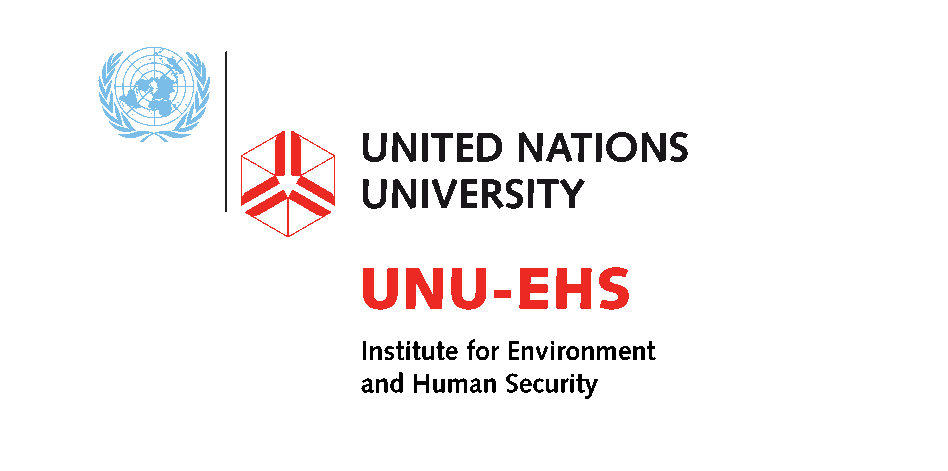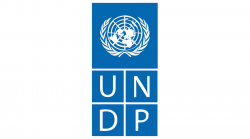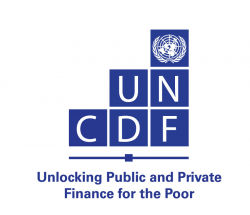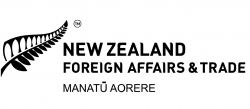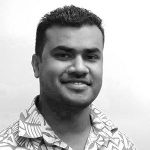Project Overview
Climate-induced disasters are the number one cause of displacement within countries in the last decade. More than 20 million people are forced to leave their homes each year. Pacific Small Island Developing States (PSIDS) make up seven of the ten countries facing the highest risk of internal displacement from extreme weather events. In a region already exposed to a variety of geophysical and climate hazards, the increased severity of the disasters as a result of climate change in the South Pacific region have disrupted economic and social progress as well as development gains. Despite the high exposure to natural hazards, most people in this region do not have any form of insurance protection.
The Pacific Insurance and Climate Adaptation Programme aims to improve the financial preparedness and resilience of Pacific Islanders towards climate change and natural hazards through the development and implementation of market-based meso- and microinsurance schemes. The programme will offer an option for the national and sub-national governments to consider subscribing to a ‘macro to micro’ scheme, where a government level insurance policy pays out to individuals, to support the most vulnerable segments. Fiji, Vanuatu, Tonga, Samoa, and the Solomon Islands will be covered under the multi-year programme.
Women, youth, and Micro, Small and Medium Enterprises (MSMEs) who are disproportionately affected by natural hazards will be the target segments of the programme. Heavily reliant sectors – agriculture, fisheries, retail and tourism will also be of focus. As part of UNCDF’s global strategy, Leaving No One Behind in the Digital Era, the programme will be working with the Pacific Digital Economy Programme to create digital payment solutions to reach Pacific Islanders in rural and remote areas. The Programme will also work together with governments and relevant stakeholders to develop customized Climate and Disaster Risk Financing strategies.
Our Project Partners
The ‘Pacific Insurance and Climate Adaptation Programme’ launched on 2 December 2020 and is jointly implemented by the UN Capital Development Fund (UNCDF), UN Development Programme (UNDP), and UN University- Institute for Environment and Human Security (UNU-EHS) through the Munich Climate Insurance Initiative (MCII) .
About UNU-EHS & MCII
The United Nations University Institute for Environment and Human Security (UNU-EHS) conducts research on risks and adaptation related to environmental hazards and global change. The Institute’s research promotes policies and programmes to reduce these risks, while taking into account the interplay between environmental and societal factors. UNU-EHS is the hosting organization of the Munich Climate insurance Initiative (MCII). MCII is a leading think-tank on climate change and insurance focusing on developing solutions for vulnerable communities. The contribution of UNU-EHS in the Pacific Insurance and Climate Adaptation Programme will be done by the MCII Project Office. The MCII association will provide specific insurance-related advisory as well as foster dialogue and partnership with similar undertakings including its Climate Risk Adaptation and Insurance in the Caribbean (CRAIC) project.
About UNCDF
The UN Capital Development Fund makes public and private finance work for the poor in the world’s 47 least developed countries (LDCs).UNCDF offers “last mile” finance models that unlock public and private resources, especially at the domestic level, to reduce poverty and support local economic development. UNCDF’s financing models work through three channels: (1)inclusive digital economies, which connects individuals, households, and small businesses with financial eco-systems that catalyze participation in the local economy, and provide tools to climb out of poverty and manage financial lives; (2) local development finance, which capacitates localities through fiscal decentralization, innovative municipal finance, and structured project finance to drive local economic expansion and sustainable development; and(3) investment finance, which provides catalytic financial structuring, de-risking, and capital deployment to drive SDG impact and domestic resource mobilization.
About UNDP
UNDP partners with people at all levels of society to help build nations that can withstand crisis, and drive and sustain the kind of growth that improves the quality of life for everyone. The UNDP Pacific Office in Fiji serves 14 countries and territories in the Pacific, as part of the 177-country office UNDP network, and offers global perspective and local insight to help empower lives and build resilient nations.
Latest Project Updates
This policy report highlights the disparate impacts of extreme weather events on men and women in Fiji. It emphasizes the need to consider gender differences in education, employment, income, and household relations when designing strategies and disaster risk financing initiatives to improve the financial preparedness against climate shocks in Fiji. Additionally, the report explores variations in financial instrument usage, gender-differentiated post-disaster coping mechanisms and demonstrates the correlation between extreme weather events and gender-based violence.
Download HereInterested in learning about the first parametric insurance product in Fiji?
Click here find out more about how it works.
Interested in learning about the Pacific Insurance and Climate Adaptation Programme’s iOnboarding platform?
Click here to find out more about how it works.
Read our new web article on 5 Things You Need to Know on Building Financial Resilience in the Pacific, here.
This online brochure provides an overview of the perils covered and product pricing for the first two climate risk insurance products offered in Fiji.
Find out more about Fiji’s First Parametric Microinsurance Product here
The Pacific Insurance and Climate Adaptation Programme successfully lobbied the Government of Fiji for the waiver of Value Added Tax (VAT) on the insurance premium for the first parametric microinsurance product introduced in the Pacific region, with cover starting from 1st September 2021.
Read more about this in this new policy brief!
DownloadThis video was created to raise awareness of different forms of insurance among Pacific communities and aims to show how individuals and families can benefit from general, health, life, and parametric insurance. As parametric insurance is still quite new in the region, this video will help familiarize communities with its role in speeding up recovery times after natural hazards.
Watch the video here
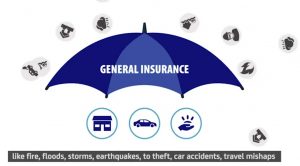
As climate change increases the frequency and impacts of large scale natural hazards, it is critical that governments put in place or update actionable, comprehensive, transparent and inter-ministerial disaster risk management (DRM) plans. For these plans to be implementable and cost-effective, governments should include a climate and disaster risk financing (CDRF) strategy as an integral component of their DRM plan. This document provides a brief overview of the instruments that are available and may be considered as part of the CDRF strategy. While finance is necessary to effectively manage disaster risks, it is not sufficient. DRM plans must also integrate (and resource) risk assessment, institutional capacity building, risk reduction and mitigation, and emergency preparedness. 1 DRM plans should also take into account long-term climate risk, and provide adequate resources for adaptation.
This CDRF overview has been developed as part of the Pacific Insurance and Climate Adaptation Programme, a joint initiative of the United Nations Capital Development Fund (UNCDF), United Nations Development Programme (UNDP) and United Nations University Institute for Environment and Human Security (UNU-EHS). The CDRF overview falls within the Policy and Regulations work stream of the programme. This programme aims to improve the financial preparedness and resilience of Pacific Islanders towards climate change and natural hazards through the development and implementation of market-based meso and microinsurance schemes. The programme will also work together with governments and relevant stakeholders to develop customized climate and disaster risk financing strategies. This CDRF overview will be used as a tool to strengthen the capacity of government officials and other stakeholders on available financial instruments, their strengths and weaknesses, and their appropriateness for different levels of risk.
In addition to this work, the Pacific Islands Forum recently published An Overview of Climate and Disaster Risk Financing Options for Pacific Islands Countries, which provides an excellent overview of disaster risk in the Pacific context, and the need for disaster risk financing to help Pacific Islands Countries to strengthen financial protection and build resilience to disasters.
Download HereThis publication aims to capture the impact and vulnerabilities of different groups and sectors, including agriculture and fisheries, tourism, commerce and manufacturing, housing and settlements, low-income and informal workers, women, and youth to natural hazards in Tonga. The publication also gives an overview of Tonga’s exposure to different types of natural hazards as well as the current coping mechanism that are currently used to overcome the effects of these hazards.
DownloadThis publication aims to capture the impact and vulnerabilities of different groups and sectors, including agriculture and fisheries, tourism, commerce and manufacturing, housing and settlements, low-income and informal workers, women, and youth to natural hazards in Fiji. The publication also gives an overview of Fiji’s exposure to different types of natural hazards as well as the current coping mechanism that are currently used to overcome the effects of these hazards.
DownloadThis publication aims to capture the impact and vulnerabilities of different groups and sectors, including agriculture and fisheries, tourism, commerce and manufacturing, housing and settlements, low-income and informal workers, women, and youth to natural hazards in Vanuatu. The publication also gives an overview of Vanuatu’s exposure to different types of natural hazards as well as the current coping mechanism that are currently used to overcome the effects of these hazards.
Download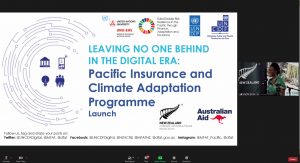
In a landmark event held on December 2nd, 2020 the New Zealand High Commissioner to Fiji, H.E. Jonathan Curr launched the Leaving No One Behind in the Digital Era: Pacific Insurance and Climate Adaptation Programme. It is a first of its kind initiative for the region where market-based climate risk insurance solutions will be made available to Pacific islanders in Fiji and Vanuatu first, and then progressively to other Pacific island countries. The Programme is jointly developed and to be implemented by the United Nations Capital Development Fund (UNCDF), the United Nations Development Programme (UNDP) and the United Nations University Institute for Environment and Human Security (UNU-EHS) and is financially supported by the New Zealand Aid Programme and the Australian Aid Programme.
Pacific Small Island Developing States (PSIDS) are highly vulnerable to natural hazards and each year face huge economic losses due to cyclones, droughts, earthquakes, volcanic eruptions and other natural disasters. The impact through some of these events have been exacerbated due to climate change. Given the limited climate disaster risk financing instruments available in the region, governments often resort to seek external aid assistance, borrow or reallocate budgets meant for other purposes, such as education, health or infrastructure.
The overall objective of the programme is to improve the financial preparedness of “Pacific households, communities, small businesses, organisations and governments towards climate change and natural hazards” through a combination of stakeholder engagement, co-creation of solutions, awareness and capacity building, innovative financing options and digital linkages – with a robust interface to the 2030 Sustainable Development Goals.
The programme is a joint UN initiative. The contribution of UNU-EHS in the Pacific Insurance and Climate Adaptation Programme will be done by the MCII Project Office. MCII is a leading think-tank on climate change and insurance focusing on developing solutions for vulnerable communities and is hosted by UNU-EHS. The MCII association will provide specific insurance-related advisory as well as foster dialogue and partnership with similar undertakings including its Climate Risk Adaptation and Insurance in the Caribbean (CRAIC) project.
In the context of our joint programme with UNU-EHS, UNCDF and UNDP, the UNDP Pacific Office in Fiji is seeking for qualified companies/firms to submit a proposal for a Feasibility Study for Parametric Models in the Pacific.
Find out more information about the request for proposals, here.
We would like to invite interested organizations to submit their proposals! This work will help us determine what types of parametric insurance products can be developed for the Pacific region. If there are any questions regarding the RFP, please reach out to procurement.fj@undp.org
Small island countries in the Caribbean and the Pacific face unrelenting challenges associated with climate change. In order to facilitate South-South collaboration and research on climate and disaster risk finance and insurance solutions to these challenges, MCII is teaming up with the University of the South Pacific, the University of the West Indies, the United Nations University Institute of Environment and Human Security, and the Pacific Financial Inclusion Programme to launch the Climate Risk Insurance Research Collaboration (CRIRC).
MCII will lead the collaboration, which will carry out research on the ground in the Caribbean and Pacific Islands and produce academic and policy publications.
For more information, please see the CRIRC press release HERE
The MCII Team has engaged with the Pacific Financial Inclusion Programme (PFIP) on conducting a scoping study in Vanuatu, Fiji and Tonga.
The goal is to develop appropriate disaster risk financing mechanisms and corresponding implementation plans, including: suitable index-based insurance products covering the risk profiles identified, reinsurance coverage, insurance distribution arrangements, etc.
MCII Team members are currently in the region conducting a series of consultations with a variety of stakeholders, incl. government ministries, meteorological departments, national disaster management agencies, local insurance companies, commercial banks, regulators, civil society organizations, donors, development partners and the private sector.
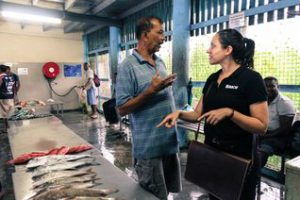
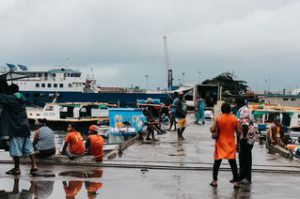
The scoping study underway has been supported by the Russian Federation funded UNDP Regional Disaster Resilience in the Pacific Small Island Developing States (RESPAC) Programme.
PFIP hopes to develop index-based insurance products to meet the needs of Pacific Islanders. By providing immediate relief for damages and losses of income caused by extreme weather events, climate risk insurance helps individuals break out of a vicious circle of poverty and vulnerability. Increasing people’s ability to manage, as well as to mitigate their vulnerability to climate hazards through insurance can significantly reduce communities and individuals’ recovery times, build resilience and contribute to long-term social and economic well-being.
Read the full Press Release HERE.



